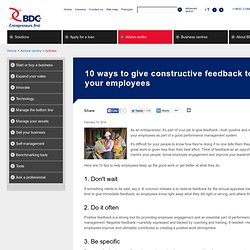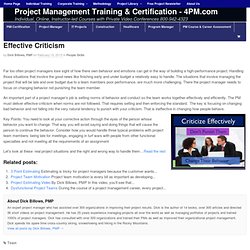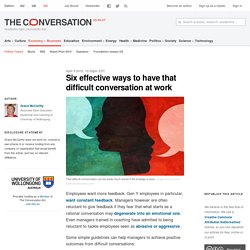

Fundamental attribution error. In social psychology, fundamental attribution error (FAE), also known as correspondence bias or attribution effect, is the tendency for people to under-emphasize situational explanations for an individual's observed behavior while over-emphasizing dispositional and personality-based explanations for their behavior.

This effect has been described as "the tendency to believe that what people do reflects who they are".[1] Origin of the term and example[edit] As a simple example of the behavior attribution error theory seeks to explain, consider the situation where Alice, a driver, is cut off in traffic by Bob. Alice attributes Bob's behavior to his fundamental personality, e.g., he thinks only of himself, he is selfish, he is a jerk, he is an unskilled driver; she does not think it is situational, e.g., he is going to miss his flight, his wife is giving birth at the hospital, his daughter is convulsing at school.
Classic demonstration study: Jones and Harris (1967)[edit] Explanations[edit] Analyzing Performance System Problems. Quick Reference Chart for Analyzing Performance Problems. Simple Model for Change in Employees Behavior. 10 Tips or Making Feedback the Breakfast of Champions. The right way to give feedback to employees. S.B.I. Feedback Tool - Situation/ Behavior/ Impact. Feedback That Works: How to Build and Deliver Your Message. This guidebook is available for eBook purchase and download from Apple's iBookstore; Amazon's Kindle; Google eBooks; Sony iStore, and other reputable distributors of eContent.

A Free Membership That Supports Your Leadership Needs - Join and Save Did you know that you can join the open and always-free myCCL at no cost and get a discount on this CCL Press Publication? CCL provides myCCL members with a 5% discount on CCL Press Publications like this just for being a member. Membership is complimentary in order to support our non-profit goal of connecting a world community of leaders and providing the best in leadership and leadership development for the benefit of societies world-wide. Join the always-free myCCL online community and get access to this discount along with a host of resources to support you or your organization with its leadership needs.
Dive Deeper and Get More Benefits Through myCCL PREMIUM Already a member? Performance management: How to give feedback. February 15, 2014 As an entrepreneur, it's part of your job to give feedback—both positive and negative—to your employees as part of a good performance management system.

It's difficult for your people to know how they're doing if no one tells them they've produced great work or given less than their best effort. Think of feedback as an opportunity to mentor your people, boost employee engagement and improve your leadership skills. Here are 10 tips to help employees keep up the good work or get better at what they do. Study Answers Age-Old Question: Do People Prefer The Good News or The Bad News First? How To Provide Ongoing Feedback & Performance Management. The 30 Percent Rule and the Art of Early Feedback. Feedback for Real. "The positive effect of feedback on performance has become one of the most widely accepted principles in psychology," write professors Angelo S.

DeNisi and Avraham N. Kluger in the February 2000 issue of The Academy of Management Executive. No surprise then that feedback gathering, whether in the form of 360-degree evaluations, employee opinion polls or numeric "voting" pads at large executive gatherings, has spread like kudzu across the corporate landscape. Criticizing Team Member the Right Way. Far too often project managers lose sight of how there own behavior and emotions can get in the way of building a high-performance project.

Handling those situations that involve the good news like finishing early and under budget a relatively easy to handle. The situations that involve managing the project that will be late and over budget due to a team members poor performance, are much more challenging. There the project manager needs to focus on changing behavior not punishing the team member. An important part of a project manager’s job is setting norms of behavior and conduct so the team works together effectively and efficiently. The PM must deliver effective criticism when norms are not followed. Theconversation. Employees want more feedback.

Gen Y employees in particular, want constant feedback. Try FeedForward Instead of Feedback. Taxonomy of Feedback & FeedForward. The Ideal Praise-to-Criticism Ratio - Jack Zenger and Joseph Folkman. By Jack Zenger and Joseph Folkman | 8:00 AM March 15, 2013 Which is more effective in improving team performance: using positive feedback to let people know when they’re doing well, or offering constructive comments to help them when they’re off track?

New research suggests that this is a trick question. The answer, as one might intuitively expect, is that both are important. But the real question is — in what proportion? The research, conducted by academic Emily Heaphy and consultant Marcial Losada, examined the effectiveness of 60 strategic-business-unit leadership teams at a large information-processing company. So, while a little negative feedback apparently goes a long way, it is an essential part of the mix.
And third, our own research shows, it helps leaders overcome serious weaknesses. I JUST WISH MY BOSS WOULD TELL ME THANK YOU! Top Employee Recognition & Global Rewards Solutions. 3 Ways to Help Someone Who's Failing. Every once in a while, you'll assign a project to an employee or colleague and about halfway through, the person will start to fail.

Perhaps the project was above his or her capability. Or maybe the person lost interest in the project or was distracted. Regardless, the impact is major. Do You Know How to Give Constructive Feedback? Do you know how to give feedback such that the other person: 1.

Wants to hear it? 2. Can understand it and act on it? SARA Model. When You Criticize Someone, You Make It Harder for that Person to Change - Daniel Goleman. By Daniel Goleman | 12:00 PM December 19, 2013.

Why Criticism Is So Hard to Take (Part 1) Very few people can take criticism graciously. For most of us, being criticized is uncomfortable at best--de-stabilizing (or even devastating) at worst. The ability to take criticism in stride, it seems, is almost universally elusive. We all need to feel good about ourselves, so the moment someone judges us negatively any doubts we may yet have about ourselves can immediately catapult to the surface. Why Criticism Is So Hard to Take (Part 2) This post (going beyond Part 1 ) offers additional bulleted explanations to help account for the almost universal susceptibility to criticism. At the same time, it suggests ways to gradually become less sensitive to the negative judgment of others. • When we're unfavorably evaluated or disagreed with, we can experience such discord almost as a put-down. Negatively sensitized to criticism, we may respond as though we were told (in so many words) that we were bad, ugly, or stupid. In such instances, the hurt child within us--never fully healed from the wound of early, and quite possibly excessive, parental criticism--is likely to bleed anew.
How Criticizing in Private Undermines Your Team - Roger Schwarz. By Roger Schwarz | 8:00 AM March 25, 2013 You are holding your weekly team leadership meeting. You are discussing with your direct reports how to handle the project delays that have caused the team to miss its quarterly numbers. You know that Ted — one of your direct reports — contributed to missing the numbers by missing two key deadlines. You’ve seen this kind of behavior before from Ted, and you’ve seen the team’s frustration with Ted. You decide to not say anything to Ted in the meeting, but afterward you privately tell him that how he’s letting you and the team down.
If you’re like most leaders, you believe in the adage “praise in public and criticize in private.” Is your leadership team a real team — one in which members are interdependent with each other for meeting team goals? Teaching Smart People How to Learn. Any company that aspires to succeed in the tougher business environment of the 1990s must first resolve a basic dilemma: success in the marketplace increasingly depends on learning, yet most people don’t know how to learn. What’s more, those members of the organization that many assume to be the best at learning are, in fact, not very good at it. I am talking about the well-educated, high-powered, high-commitment professionals who occupy key leadership positions in the modern corporation. Most companies not only have tremendous difficulty addressing this learning dilemma; they aren’t even aware that it exists. The reason: they misunderstand what learning is and how to bring it about. As a result, they tend to make two mistakes in their efforts to become a learning organization.
First, most people define learning too narrowly as mere “problem solving,” so they focus on identifying and correcting errors in the external environment. Companies can learn how to resolve the learning dilemma. Managing Employee Negative Reactions to Feedback. Three Keys to Reducing Defensive Reactions to Feedback. Most of us would rather have a root canal (without the Novocain) than give an employee feedback about poor performance, particularly when it relates to a behavior based issue. Yet, we will eagerly discuss, or more accurately complain about, these issues to colleagues, friends or family. So what stops us from providing feedback to the employee?
Clearly, identifying the performance issue isn't the roadblock. Ask any group of co-workers or managers what the problem is with a particular employee and they usually can describe it without hesitation: Management: Defensiveness About Feedback. Dunning–Kruger effect. Cognitive bias in which people with low ability at a task overestimate their ability In the field of psychology, the Dunning–Kruger effect is a cognitive bias in which people with low ability at a task overestimate their ability.
It is related to the cognitive bias of illusory superiority and comes from the inability of people to recognize their lack of ability. Without the self-awareness of metacognition, people cannot objectively evaluate their competence or incompetence. Dunning-Kruger Effect: Why People Remain Incompetent. The Dunning-Kruger effect is the finding that the poorest performers are the least aware of their own incompetence. “One of the painful things about our time is that those who feel certainty are stupid, and those with any imagination and understanding are filled with doubt and indecision.” The quote above comes from the philosopher Bertrand Russell. Leadership and Self-Deception: Getting out of the Box eBook: The Arbinger Institute. One Way to Rein in Powerful People? Honest Feedback - Association for Psychological Science. The indispensable research blog on the science of the modern workplace, covering everything from leadership and management to the behavioral, social, and cognitive dynamics behind performance and achievement.
The Irritating Reason That Overconfident People Get All The Breaks. The Worse-Than-Average Effect: When You’re Better Than You Think. People underestimate their ability at stereotypically difficult tasks like playing chess, telling jokes, juggling or computer programming. Coaching an Employee Who Doesn’t Want Help. How To Open Up People's Minds to Change. Why a Coach Cannot Create Awareness for the Client. In my years as a coach trainer and Mentor Coach, I’ve found that many practitioners struggle with the eighth ICF Core Competency, which calls on them to “create awareness.”
The true purpose of any coaching conversation is to create a safe, supportive environment where clients can explore and uncover what they may not have conscious access to about themselves, their work, or some other aspect of their lives. 6 Steps to Get Anyone (Yourself Included) to Do Anything. I am not promising these things. A motivational coach, consultant, therapist, and award-winning faculty member at Yale School of Medicine is. A guy named Michael V. How To Encourage People To Change Their Own Minds.